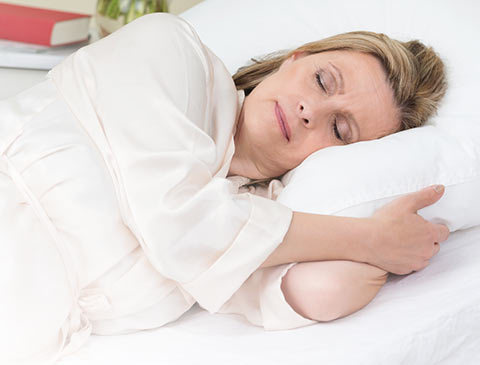Insomnia is really a sleep problem where individuals are can not get to sleep or stay asleep. Most Australians experience insomnia in the course of their lives, and about 10 percent folks have a minimum of mild insomnia at any moment. It’s more widespread in females and elderly people.

Insomnia may include:
difficulty sleeping comfortably
getting out of bed throughout the night and having trouble rediscovering the reassurance of sleep
getting up prematurily .
Sometimes people experience the 3.
Some people experience insomnia for the short period of time, as an example when they are worried or stressed. But sometimes insomnia is chronic (called chronic insomnia disorder), meaning people have trouble falling or staying asleep for about 3 months, together with being impaired during the day.
Which are the the signs of insomnia?
People experience insomnia differently. A number of the signs of insomnia are:
having difficulty falling asleep
waking a whole lot at night time
getting out of bed to soon and within go back to sleep
not feeling refreshed if you wake up
Insomnia can cause these symptoms during the day:
tension headaches
feeling tired or being too sleepy to perform normal activities
poor memory and concentration
being concerned about sleeping
feeling irritable or moody
being hyperactive, aggressive or impulsive
losing desire for doing things
reduced energy and motivation
feeling sleepy when sitting quietly
What causes insomnia?
Sometimes there isn’t any underlying cause for insomnia. This is called primary insomnia.
Sometimes it comes with an underlying cause like a general health condition, anxiety, depression or sleep problem. This is known as secondary insomnia.
Insomnia might be deteriorated by:
poor sleep habits (sleep hygiene)
substances including caffeine, nicotine, alcohol, amphetamines and a few prescription medicines
stress, brought on by work or financial problems, relationship issues or grief
health problems, particularly conditions causing pain, hormone changes (e.g. hot flushes and sweating at night during menopause), and breathing, urinary or flatulence
mental health problems – insomnia is usually a sign of anxiety, depression or other disorders
insomnia issues, including obstructive sleep apnoea, circadian rhythm disorders due to irregular sleep patterns, restless legs syndrome and periodic limb movement
life stage – older people are more likely to have insomnia
shift work – those who work different shifts often tend not to sleep as well as those that work set hours in daytime
When do i need to see my doctor?
It is just a good option to visit your doctor if you are having difficulty sleeping or you are having difficulties with your mood, feeling restless in bed, snoring badly or getting up not feeling refreshed. Keeping a sleep diary is a superb approach to track symptoms, which you’ll tell your overall health professional.
We apply CBT-I to eliminate your insomnia problems quickly. Do you experience feeling tired on account of insomnia? Do you dread planning to work? Sometimes you may feel anxious within your relationships? Get the life in 6 sessions, and without chemistry. We invite you in online, inside the ease your cocoon, including on weekends for your outings. CBT-I (CBT-I), Cognitive-Behavioral Therapy for Insomnia, is surely an advanced scientific method with demonstrated effectiveness within a large population.
State-licensed psychologist (France), university degree in neuropsychology, certified hypnotist (France), Ecole Normale Superieure d’Ulm graduate, Columbia University visiting student.
More info about light box check out the best net page
